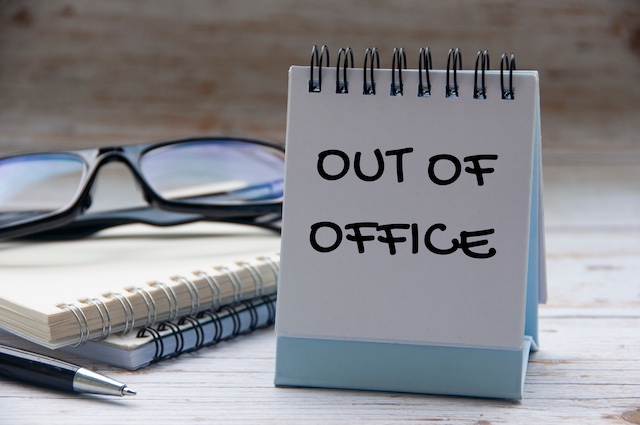Burnout is a type of exhaustion that can be experienced by professionals and is often described as a feeling of long-term stress or tiredness towards a career. While the exact cause can vary, it often stems from an unfortunate combination of feeling overworked and underappreciated, among other things.
How to recover from burnout
Recovering from burnout is absolutely doable. Keep reading to find out how to combat and eventually overcome feelings of burnout at work.
1. Acknowledge that there’s a problem
The first step toward combating burnout is discovering why it is happening and personally addressing the problem. Failing to take the issue seriously may lead to continuing patterns of behavior that feed into your exhaustion. It may help to look into what symptoms burnout can cause to determine whether or not you’re experiencing the condition. For example, note any significant changes to your work ethic or personality. Issues like a lack of concentration, increased irritability in the workplace, and feelings of disillusionment about your job might result from burnout.
2. Speak to a HR manager or team leader
You shouldn’t face this problem alone. Finding a trusted team member or leader in the workplace to act as your support system can help you find solutions that you may not otherwise have considered. Talking to a manager or team leader may help uncover and fix any workplace-related problems contributing to your stress. When dealing with mental health, asking for help is important because it can allow you to share the weight of your burdens and gain some outside perspective you might not have thought of.
3. Take time off
Distancing yourself from the problem can prevent job-related stress from continuing to build. While staying physically distanced from the workplace is beneficial, you should also find ways to distance yourself from the position mentally. Instead of thinking about your job, try filling your free time with activities like spending time with loved ones or participating in mentally stimulating hobbies. The length of the break needed to alleviate the burnout will vary between individuals, for the intensity of burnout differs between professionals.
 4. Re-evaluate how you view your job
4. Re-evaluate how you view your job
One contributing factor to your burnout might be a lack of passion for your occupation. Understanding the reasons behind a person’s career-related decisions can either help them reclaim the initial spark that was lost or may surface the understanding that they’ve become interested in other professions. Those who realize their current positions are unfulfilling can begin working towards entering new careers. However, it’s also important not to mistake temporary apathy for a long-term lack of passion.
You should approach the subject after receiving some assistance with your burnout to remain as objective as possible. Consider speaking with a career coach who may be able to help you evaluate your career priorities and whether upskilling, reskilling, or choosing a different role or career path would help alleviate your burnout.
5. Get organized
A severe lack of organization might cause the exhaustion you’re feeling from burnout. Chaos is stressful, so a disorganized workspace that’s filled with clutter is not an ideal environment for staying productive. Having a colleague assist with organizing the space could make the experience less overwhelming for the employee. A lack of organization may also be seen in your schedule, such as not incorporating breaks into your workday or piling on too many responsibilities at once. Give yourself room to breathe and make time for meals and restroom breaks.
 6. Avoid working after hours
6. Avoid working after hours
Drawing a line between your work and home life might assist with combating your burnout. Prolonged work can eat away at the time needed to recharge for the next day, which is why you should try to avoid clocking up unnecessary hours. Those unable to completely detach themselves from their job by taking work calls after hours or writing job-related emails might be more prone to experiencing burnout.
7. Practice self-care
Taking care of your mental and physical health is vital to avoid feeling overwhelmingly exhausted. Simple acts like getting a full night’s sleep or exercising can lead to decreased burnout. Many activities are available that help people mentally unwind and relax, such as mediation, yoga, and breathing exercises. Knowing your limits is another form of self-care that professionals should practice. It’s okay to decline optional work when dealing with other obligations instead of adding to your stress.
How long does it take to recover from burnout?
It can be difficult to measure how long it takes to recover from burnout due to a lack of consistency in how people experience and treat their issues.
Many people don’t treat their condition with any intervention, which can result in long-term burnout that lasts longer than 12 months.
Recovery is a highly personalized process, though some research suggests that the feeling leaves after around 12 weeks. Remember that healing from burnout requires time, individual effort, and some outside assistance from supporters like your management team or loved ones.
Burnout is a concerning condition that can weigh professionals down due to the recurring feelings of fatigue, sadness, and excessive stress. Thankfully, there are several ways you can reduce your workplace burdens and overcome career-related exhaustion. We encourage you to get the help you need today and make the necessary lifestyle changes to combat burnout. INTOO’s coaches help employees in every stage of their career develop strategies to meet their goals, while employers reap the benefits of increased engagement, productivity, and retention. Learn more about how our career development programs can benefit your company.\


 4. Re-evaluate how you view your job
4. Re-evaluate how you view your job 6. Avoid working after hours
6. Avoid working after hours








